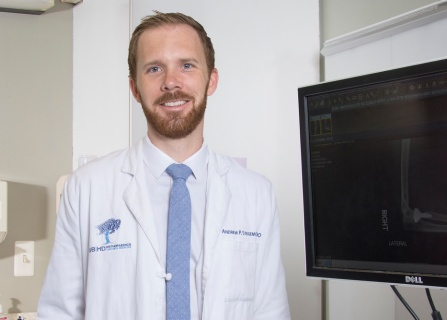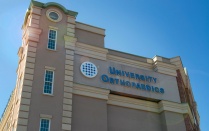Rotations

Our curriculum incorporates rotations specific to orthopaedic subspecialties. Residents like Andrew Stegemann, DO, say our rotations challenge them to expand their thinking.
Rotations in our residency ensure that your training is well-rounded and enable you to learn from expert physicians in a variety of clinical settings.
Upcoming Events
Import medical school events to your Exchange, Gmail, iPhone or iPod calendar. Customize your calendar by selecting different event categories and receive automatic reminders of the school events that matter most to you.






